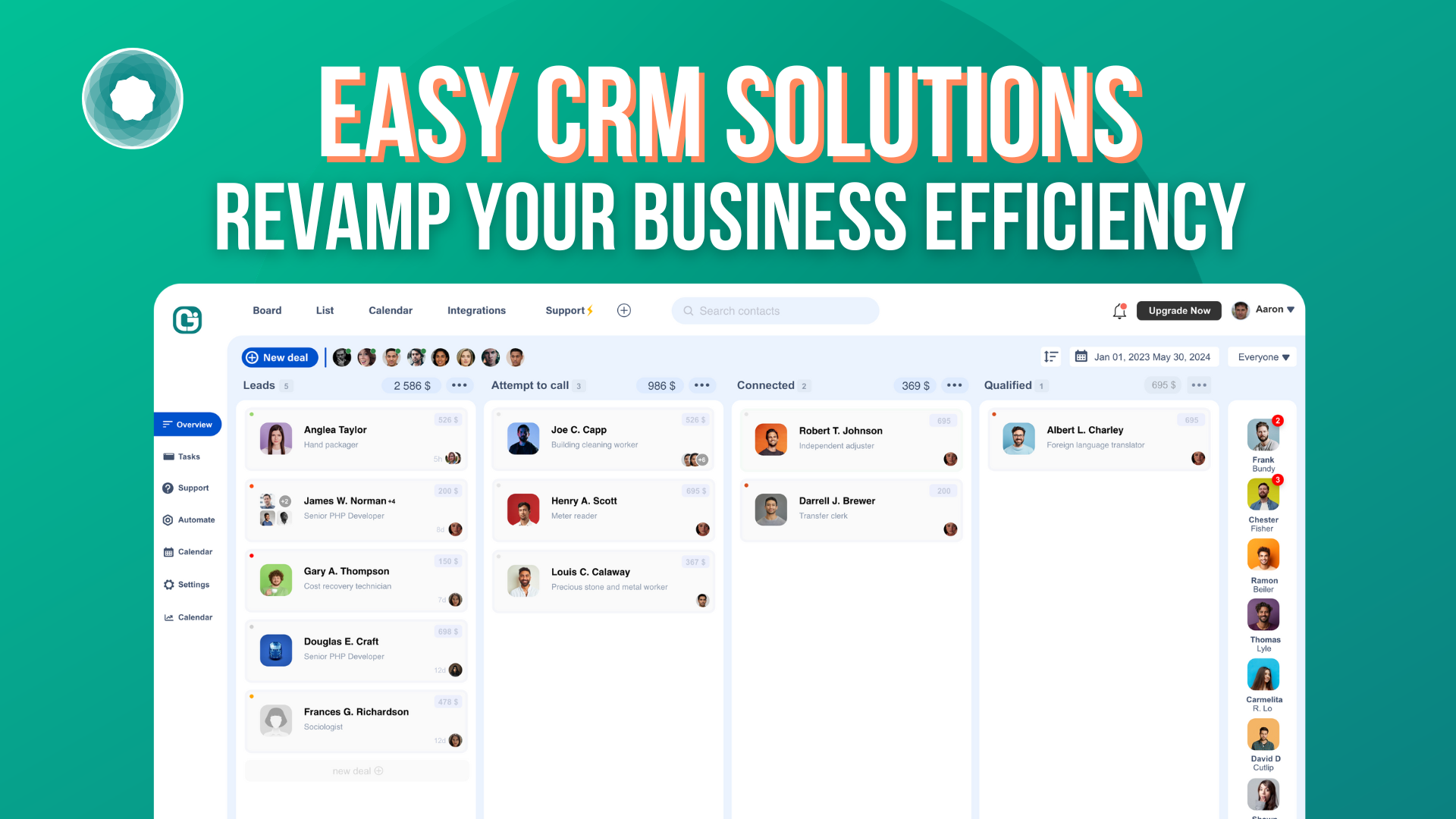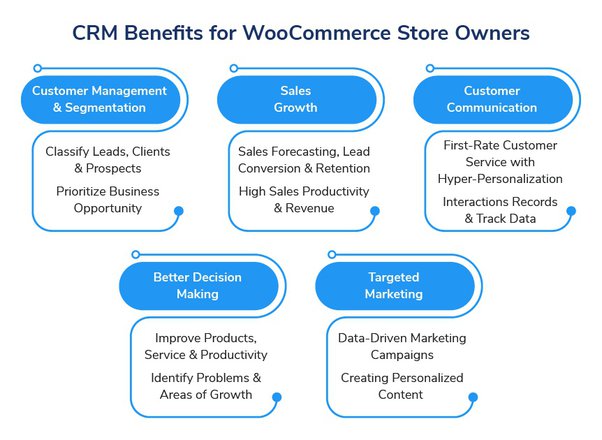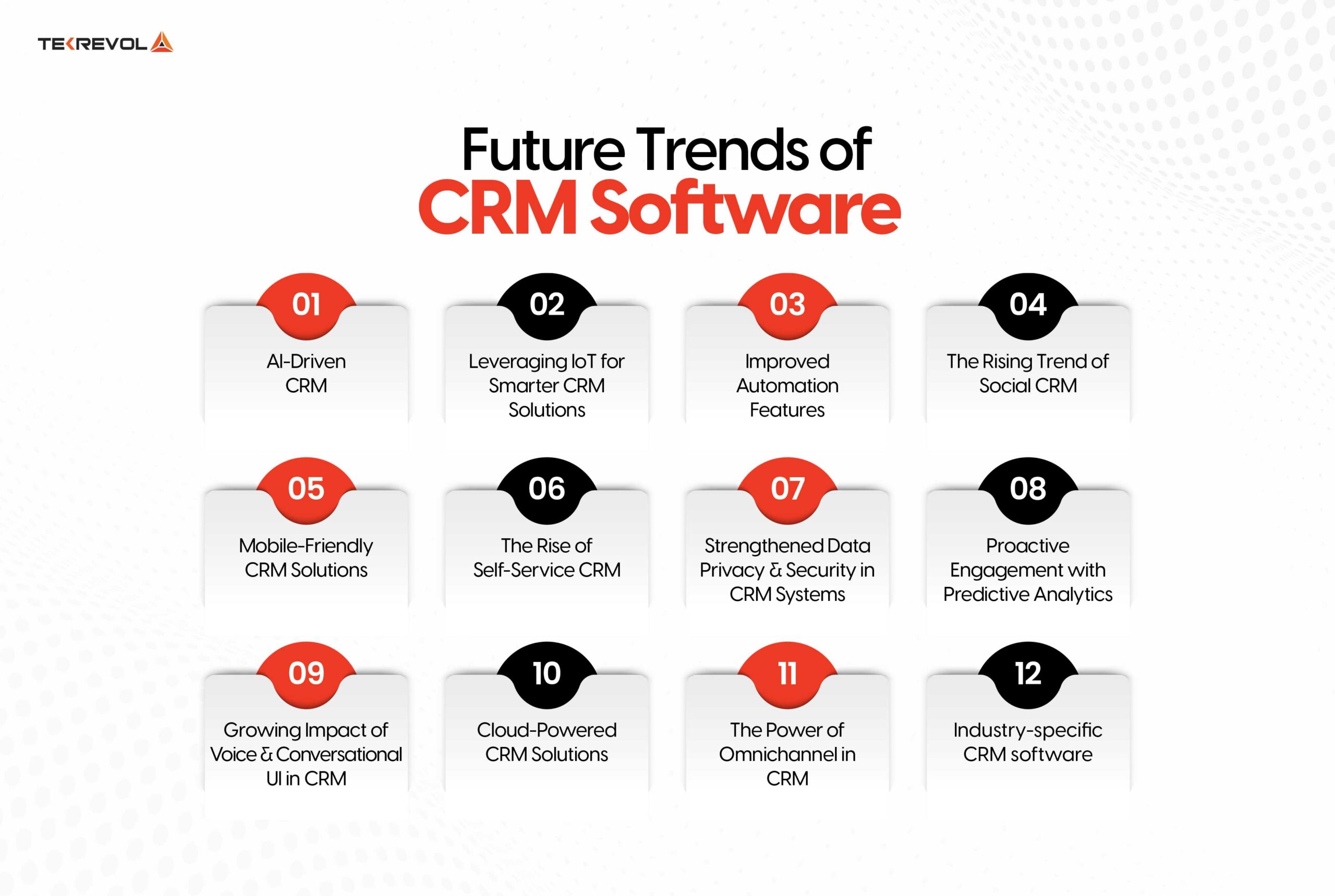Boost Your Small Retail Business: The Ultimate Guide to CRM

Boost Your Small Retail Business: The Ultimate Guide to CRM
In the bustling world of retail, where customer loyalty is the golden ticket, and competition is fiercer than ever, having a solid Customer Relationship Management (CRM) system is no longer a luxury—it’s a necessity. For small retail businesses, juggling inventory, sales, marketing, and customer interactions can feel like spinning plates. That’s where a CRM steps in, becoming your all-in-one solution for streamlining operations, enhancing customer experiences, and ultimately, driving growth. This comprehensive guide will delve deep into the world of CRM, specifically tailored for small retail businesses, empowering you to make informed decisions and take your business to the next level.
What is CRM and Why Does Your Small Retail Business Need It?
At its core, a CRM system is a technology that helps you manage and analyze customer interactions and data throughout the customer lifecycle, with the goal of improving business relationships with customers, assisting in customer retention, and driving sales growth. It’s not just about storing contact information; it’s about understanding your customers, anticipating their needs, and providing them with personalized experiences that keep them coming back for more.
For small retail businesses, the benefits of CRM are numerous:
- Improved Customer Relationships: CRM allows you to track customer interactions, preferences, and purchase history, enabling you to personalize your communication and build stronger relationships.
- Increased Sales: By understanding your customers’ needs, you can tailor your marketing efforts, offer relevant products, and increase your chances of closing a sale.
- Enhanced Efficiency: CRM automates many time-consuming tasks, such as data entry and email marketing, freeing up your time to focus on other aspects of your business.
- Better Customer Service: With all customer information in one place, your team can quickly access relevant details, provide faster and more informed support, and resolve issues efficiently.
- Data-Driven Decision Making: CRM provides valuable insights into your customers’ behavior, allowing you to make data-driven decisions about your marketing, sales, and inventory management strategies.
- Inventory Management Integration: Many CRM systems integrate with inventory management tools, providing a comprehensive view of your business operations.
In essence, a CRM system empowers small retail businesses to operate more efficiently, provide exceptional customer service, and ultimately, thrive in a competitive market. Think of it as your secret weapon for building lasting customer loyalty and boosting your bottom line.
Key Features to Look for in a CRM System for Small Retail
Choosing the right CRM system is crucial for the success of your small retail business. With so many options available, it’s essential to identify the features that align with your specific needs and goals. Here’s a breakdown of the key features to look for:
1. Contact Management
This is the foundation of any CRM system. It allows you to store and manage customer contact information, including names, addresses, phone numbers, email addresses, and social media profiles. Look for features that allow you to:
- Import and export contacts easily.
- Segment your contacts based on various criteria (e.g., purchase history, demographics).
- Add notes and track interactions with each customer.
2. Sales Automation
Sales automation features help streamline your sales process and improve efficiency. Look for features such as:
- Lead tracking: Capture and manage leads from various sources.
- Sales pipeline management: Visualize and track your sales opportunities through different stages.
- Automated email marketing: Send targeted email campaigns to nurture leads and promote products.
3. Marketing Automation
Marketing automation features help you automate your marketing efforts and engage with your customers. Key features include:
- Email marketing: Create and send email newsletters, promotional offers, and personalized communications.
- Segmentation: Group your customers based on their interests, behaviors, and demographics to send targeted campaigns.
- Campaign tracking: Track the performance of your marketing campaigns and measure their effectiveness.
4. Customer Service and Support
Provide excellent customer service and build stronger relationships with features like:
- Ticketing system: Manage customer inquiries and support requests efficiently.
- Live chat: Offer real-time support to customers on your website.
- Knowledge base: Create a self-service knowledge base with FAQs and helpful articles.
5. Reporting and Analytics
Gain valuable insights into your business performance with robust reporting and analytics features, including:
- Sales reports: Track sales performance, identify top-selling products, and analyze revenue trends.
- Customer reports: Analyze customer behavior, identify customer segments, and track customer lifetime value.
- Marketing reports: Measure the performance of your marketing campaigns and track key metrics such as open rates, click-through rates, and conversion rates.
6. Integration with Other Tools
Ensure seamless integration with other tools you use, such as:
- E-commerce platforms: Integrate with your online store (e.g., Shopify, WooCommerce) to sync customer data and track sales.
- Accounting software: Integrate with your accounting software (e.g., QuickBooks) to streamline financial management.
- Social media: Integrate with your social media accounts to manage your social media presence and engage with your customers.
- Payment gateways: Integrate with payment gateways (e.g., Stripe, PayPal) to process payments securely.
7. Mobile Accessibility
Choose a CRM system with a mobile app or a responsive design that allows you to access your data and manage your business on the go. This is especially important for small retail businesses where owners and employees are often on the move.
Top CRM Systems for Small Retail Businesses
Now that you understand the key features to look for, let’s explore some of the top CRM systems specifically designed for small retail businesses. Each system has its own strengths and weaknesses, so consider your specific needs and budget when making your choice.
1. HubSpot CRM
HubSpot CRM is a popular choice for small businesses due to its user-friendly interface, robust features, and free plan. It offers a comprehensive suite of tools for contact management, sales automation, marketing automation, and customer service. While the free version is excellent for getting started, paid plans unlock more advanced features and integrations. It is particularly well-suited for businesses that prioritize inbound marketing and content creation.
- Pros: User-friendly, free plan available, excellent for inbound marketing, strong integration capabilities.
- Cons: Can be limited in the free version, some advanced features require paid plans.
2. Zoho CRM
Zoho CRM is a feature-rich and affordable CRM system that offers a wide range of tools for sales, marketing, and customer service. It’s a great option for small businesses that need a comprehensive solution without breaking the bank. Zoho CRM offers a free plan for up to three users, making it accessible for very small businesses. It also boasts a large ecosystem of integrations with other Zoho apps and third-party services.
- Pros: Affordable, feature-rich, free plan available, extensive integration capabilities.
- Cons: The interface can be overwhelming for some users, the free plan has limitations.
3. Pipedrive
Pipedrive is a sales-focused CRM system designed to help sales teams manage their leads and close deals. Its visual sales pipeline makes it easy to track deals through different stages and identify potential bottlenecks. Pipedrive is known for its simplicity and ease of use, making it a good choice for businesses that want a CRM system that’s quick to set up and implement. It offers a range of plans based on the number of users and features.
- Pros: User-friendly, sales-focused, visual pipeline, easy to set up.
- Cons: Less focus on marketing automation compared to other CRMs.
4. Freshsales
Freshsales, by Freshworks, is a CRM system that combines sales and customer service features. It offers a user-friendly interface, a visual sales pipeline, and features like built-in phone and email integration. Freshsales is a good option for businesses that want a CRM system that can handle both sales and customer support. It offers a free plan and various paid plans with different feature sets.
- Pros: User-friendly, combines sales and customer service, built-in phone and email integration.
- Cons: Can be less feature-rich than some other CRMs.
5. Salesforce Sales Cloud
Salesforce Sales Cloud is a powerful and comprehensive CRM system used by businesses of all sizes, including small retail businesses. It offers a wide range of features for sales, marketing, customer service, and analytics. Salesforce can be more complex to set up and implement than other CRMs, but it offers unparalleled customization and scalability. It has a variety of pricing tiers to suit different business needs.
- Pros: Powerful, highly customizable, scalable, extensive features.
- Cons: Can be complex to set up and implement, can be expensive.
When choosing a CRM, it’s essential to compare these and other options based on your business’s specific needs, budget, and technical expertise. Consider factors like ease of use, features, integrations, and pricing.
Implementing a CRM System: A Step-by-Step Guide
Once you’ve chosen a CRM system, the next step is to implement it effectively. Here’s a step-by-step guide to help you get started:
1. Planning and Preparation
Before you start implementing your CRM, take some time to plan and prepare. This includes:
- Defining your goals: What do you hope to achieve with your CRM? (e.g., increase sales, improve customer service, streamline operations).
- Identifying your needs: What features do you need to meet your goals?
- Choosing the right CRM: Select a CRM system that meets your needs and budget.
- Assigning roles and responsibilities: Determine who will be responsible for implementing and managing the CRM.
- Data migration plan: Plan how you will migrate your existing data into the new CRM.
2. Data Migration
Migrating your existing customer data into your CRM is a critical step. Here’s how to do it effectively:
- Clean your data: Remove duplicate entries, correct errors, and standardize your data format.
- Import your data: Use the CRM’s import tools to upload your data from spreadsheets or other sources.
- Map your data fields: Ensure that your data fields are mapped correctly to the corresponding fields in the CRM.
- Test your data: Verify that your data has been imported correctly and that all fields are populated as expected.
3. Customization and Configuration
Customize your CRM to meet your specific business needs:
- Configure your settings: Set up your sales pipeline, email templates, and other settings.
- Customize your fields: Add custom fields to capture specific information about your customers.
- Integrate with other tools: Connect your CRM with your other business tools, such as your e-commerce platform, accounting software, and social media accounts.
- Set up user permissions: Control access to data and features based on user roles.
4. Training and Adoption
Train your team on how to use the CRM system effectively:
- Provide training: Offer training sessions or create training materials to educate your team on how to use the CRM.
- Encourage adoption: Promote the benefits of using the CRM and encourage your team to use it consistently.
- Provide ongoing support: Offer ongoing support and answer any questions your team may have.
- Monitor usage: Track user activity and identify areas where additional training or support may be needed.
5. Ongoing Management and Optimization
Once your CRM is up and running, it’s important to manage and optimize it continuously:
- Regularly update your data: Keep your customer data up-to-date by regularly updating contact information and tracking interactions.
- Analyze your data: Use the CRM’s reporting and analytics features to track your performance and identify areas for improvement.
- Refine your processes: Continuously refine your sales, marketing, and customer service processes to improve efficiency and effectiveness.
- Stay up-to-date: Keep up with the latest CRM features and best practices.
Best Practices for CRM Success in Small Retail
Implementing a CRM system is only the first step. To truly reap the rewards, you need to follow best practices that ensure your CRM is used effectively and contributes to your business’s success. Here are some key strategies:
1. Focus on Data Quality
The value of your CRM system is directly proportional to the quality of your data. Inaccurate or incomplete data can lead to wasted marketing efforts, poor customer service, and incorrect business decisions. Implement these best practices:
- Data Validation: Implement data validation rules to ensure data accuracy during entry.
- Regular Data Cleaning: Schedule regular data cleaning sessions to remove duplicates, correct errors, and update outdated information.
- Data Standardization: Standardize data formats and naming conventions to maintain consistency.
2. Personalize Customer Interactions
Customers today expect personalized experiences. Your CRM system allows you to tailor your interactions based on customer data and preferences. Here’s how:
- Segmentation: Segment your customer base based on demographics, purchase history, and behavior to send targeted marketing campaigns.
- Personalized Emails: Use customer names, purchase history, and other data to personalize email communications.
- Targeted Offers: Offer personalized discounts and promotions based on customer preferences.
3. Integrate with Your POS System
Integrating your CRM with your Point of Sale (POS) system allows you to capture real-time sales data and gain a comprehensive view of your customer’s purchase history. This integration enables:
- Automated Data Entry: Automatically update customer records with purchase information.
- Targeted Marketing: Send targeted marketing campaigns based on purchase history.
- Inventory Management: Get insights into product performance and optimize inventory management.
4. Train Your Team Effectively
Your team’s ability to use the CRM effectively is crucial to its success. Provide thorough training and ongoing support:
- Comprehensive Training: Provide training on all CRM features and functionalities.
- Ongoing Support: Offer ongoing support and answer any questions your team may have.
- User Adoption: Encourage user adoption by highlighting the benefits of the CRM and its impact on their daily tasks.
5. Analyze and Optimize Regularly
Your CRM system provides valuable data insights. Regularly analyze this data and optimize your processes:
- Performance Metrics: Track key performance indicators (KPIs) such as sales growth, customer retention, and marketing campaign effectiveness.
- Process Optimization: Identify areas for improvement in your sales, marketing, and customer service processes.
- Adapt and Adjust: Adapt your CRM strategy based on data insights and evolving customer needs.
CRM: The Cornerstone of Retail Success
In the dynamic world of small retail, a CRM system is no longer optional; it’s a strategic imperative. It empowers you to build stronger customer relationships, increase sales, streamline operations, and make data-driven decisions. By understanding the key features, choosing the right system, implementing it effectively, and following best practices, you can unlock the full potential of CRM and propel your small retail business towards sustained growth and success.
Embrace the power of CRM, and watch your business thrive in a customer-centric world. The future of retail is personalized, efficient, and data-driven, and a CRM system is your key to unlocking that future.
Investing in a CRM is an investment in your future. It’s about more than just managing customer data; it’s about building lasting relationships, fostering loyalty, and creating a thriving business. The time to act is now. Explore the options, implement the right system, and watch your small retail business flourish.




